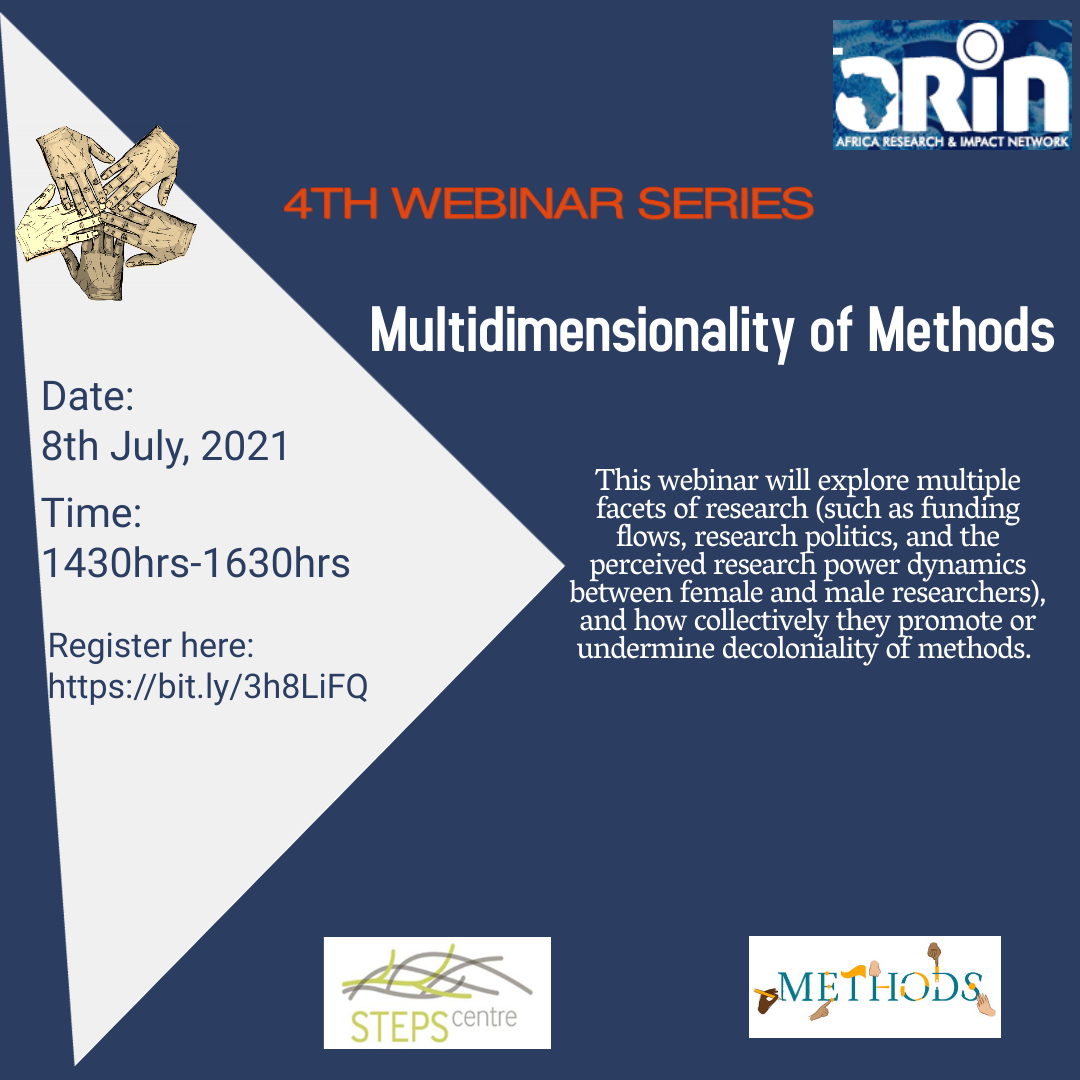Decolonising Methodologies to Sustainability in Africa
In the Global South, ‘coloniality’ has long been associated with political rule over subordinated countries. Struggles for ‘decoloniality’ have evolved from the undoing of colonial rule to the even more fundamental challenge of freeing knowledge, practice, and culture from deeper worldwide concentrations of incumbent power. In keeping with the more expansive ambitions of the Sustainable Development Goals, a decolonization framework thus encompasses some of the most profound and pervasive critiques of globalizing structures and their conditioning effects in every setting. Accordingly, the neglected imperative to ‘decolonize methodologies’ in research and policy appraisal, embodies some of the most important and intractable challenges in this field – offering crucial opportunities for thinking, knowing, and doing alike. This year, 2021, the Africa Research and Impact Network (ARIN) and partners (ACTS Kenya, STEPS Centre UK, Umbela Mexico, and the Global Sustainability Hubs), are exploring what decoloniality would mean for research methods, and policy (engagement, co-creation, etc) processes globally (with experiences in Africa, North America, and the UK. )The focus of ARIN in the project is on “Decolonising Methodologies to Sustainability in the Global South”. The project will include seminars, and a book culminating in methods vignettes and video snippets, and an invite-only ARIN-ASH Summer School.
Webinar4: Multidimensionality of methods
The Africa Research and Impact Network (ARIN) invites you to a webinar on Multidimensionality of Methods. This theme explores multiple facets of research (such as funding flows, research politics, and the perceived research power dynamics between female and male researcher), and how collectively they promote or undermine decoloniality of methods. Considering that different disciplines have variety in methodological applications, which are perceived differently among researchers, practitioners and policy makers, it follows that aspects such as funding flows, research politics, and the perceived research power dynamics between gender groups is likely to tilt decolonizing research into multiple layers of actions.
Please send any enquiries to j.onyango@acts-net.org


